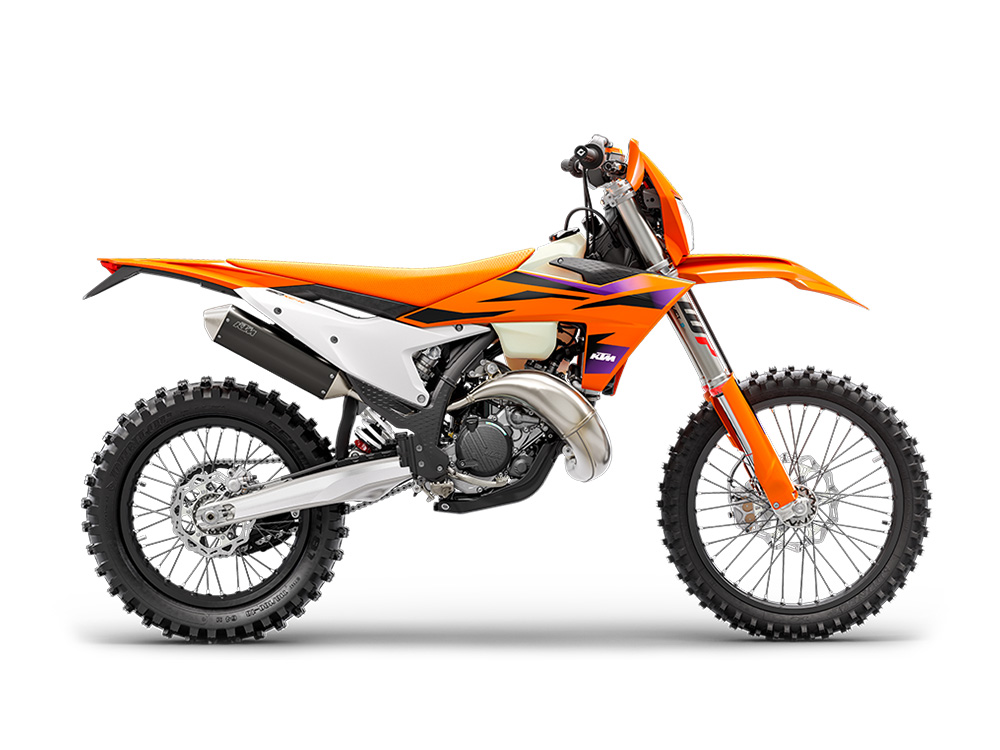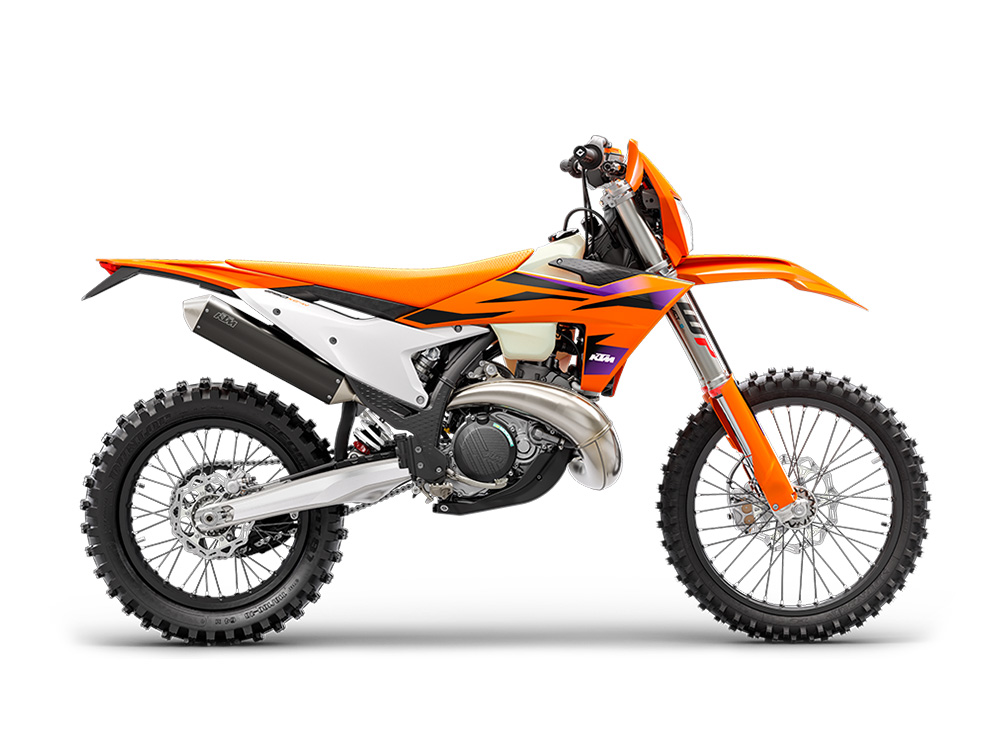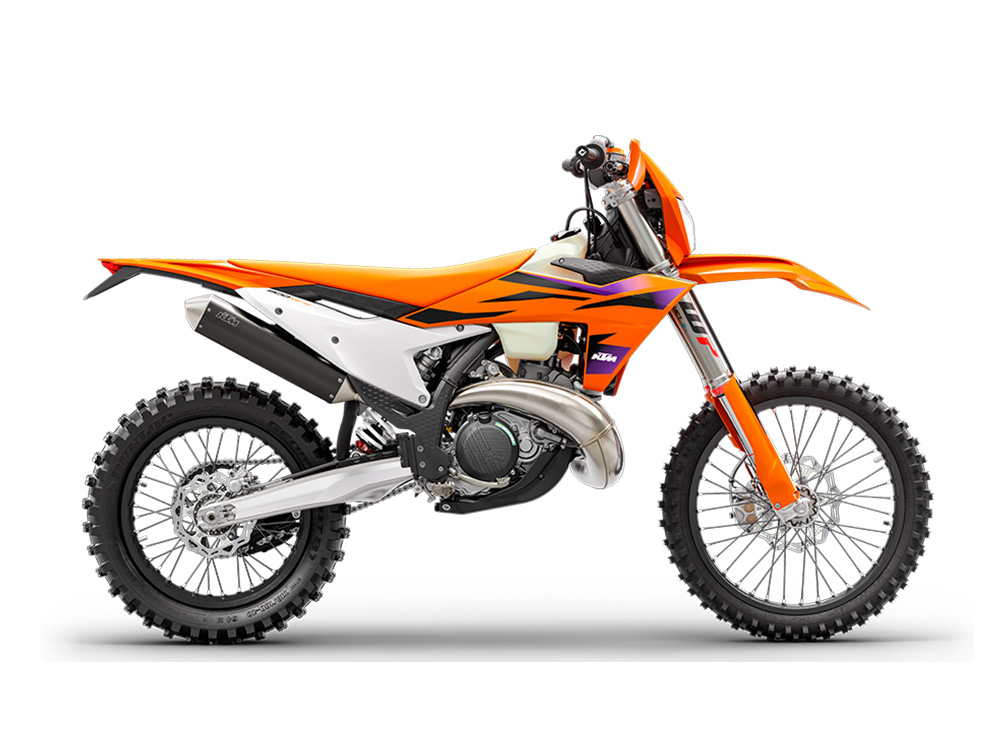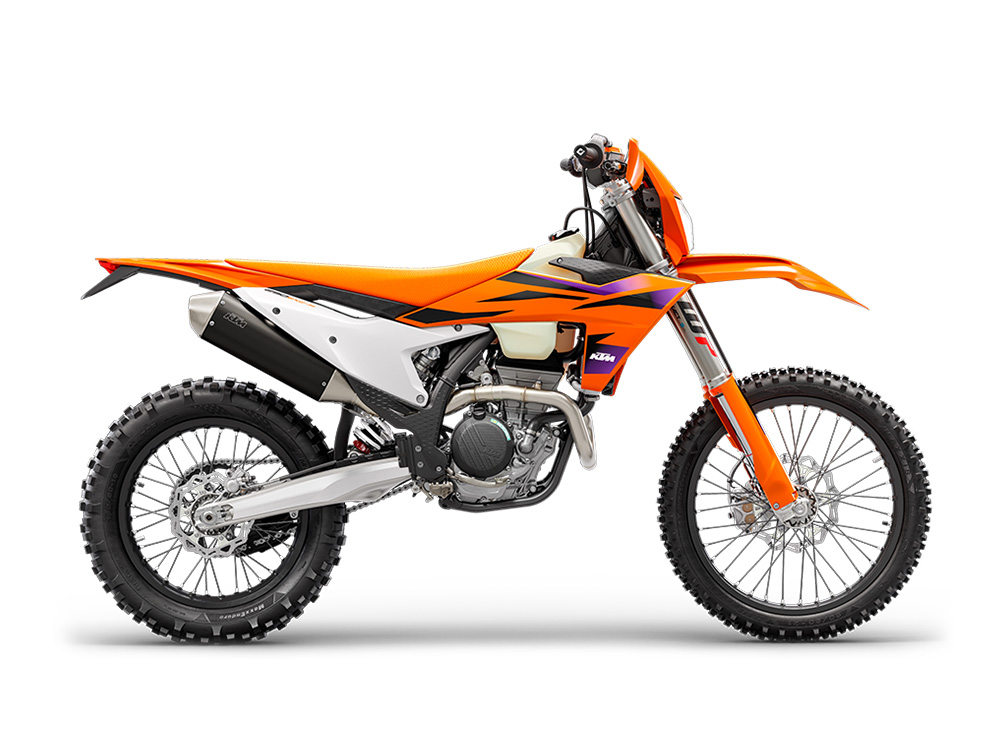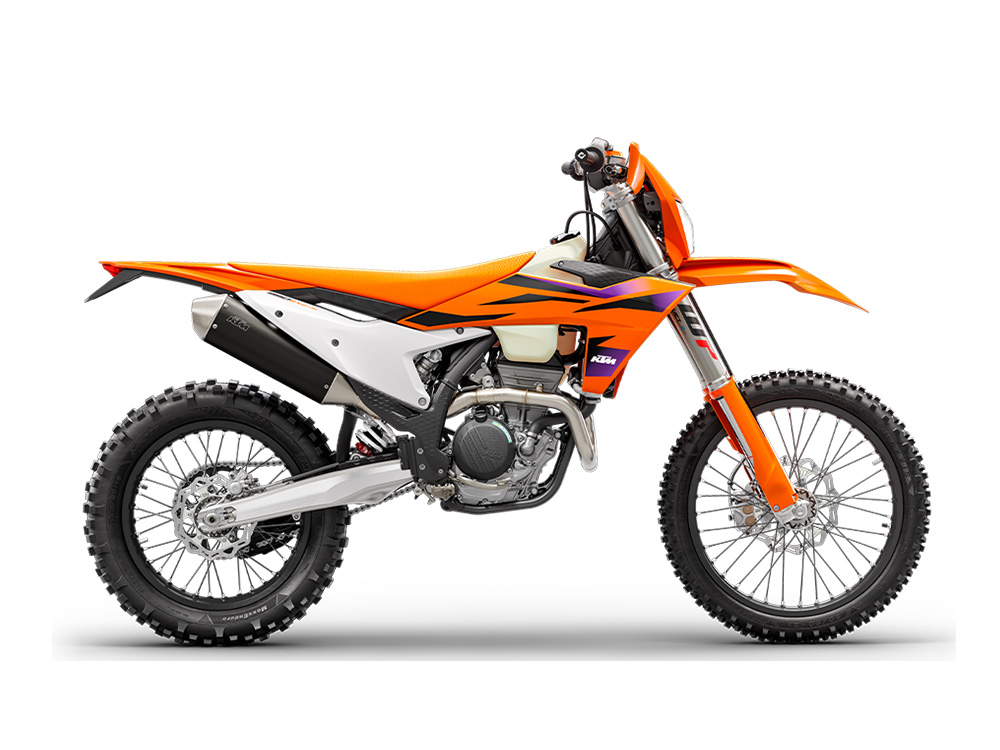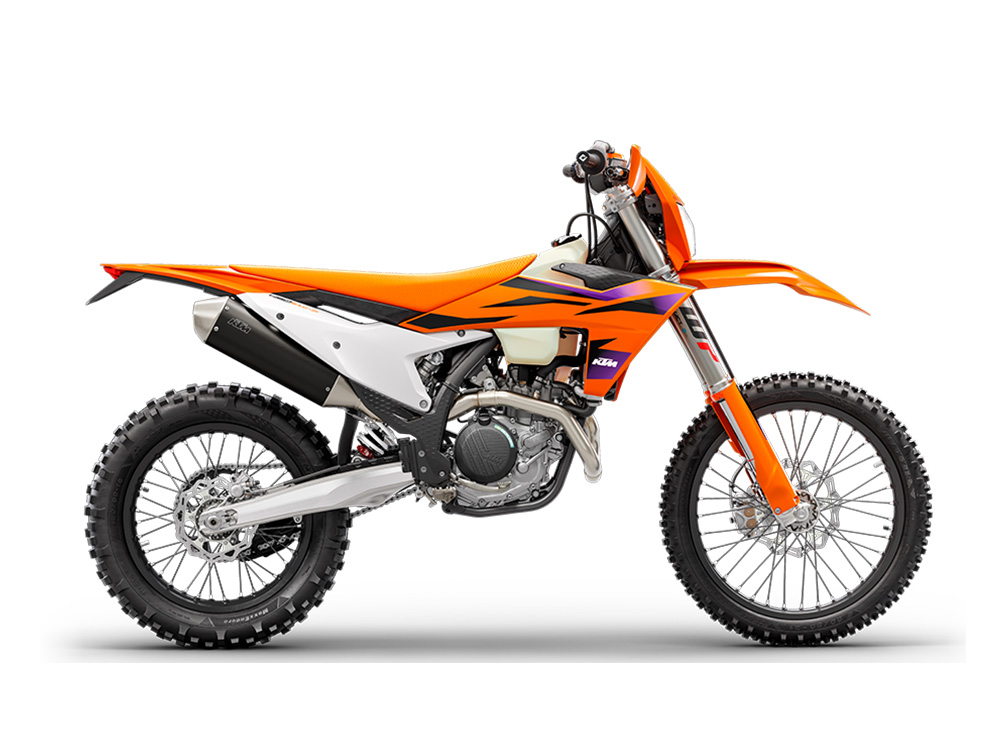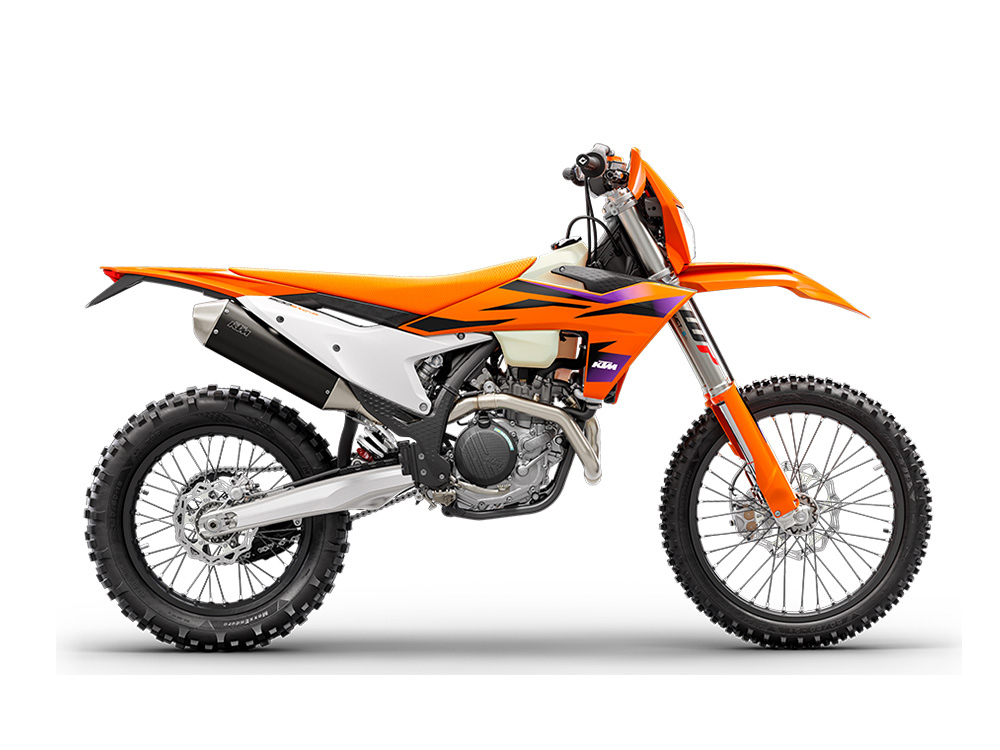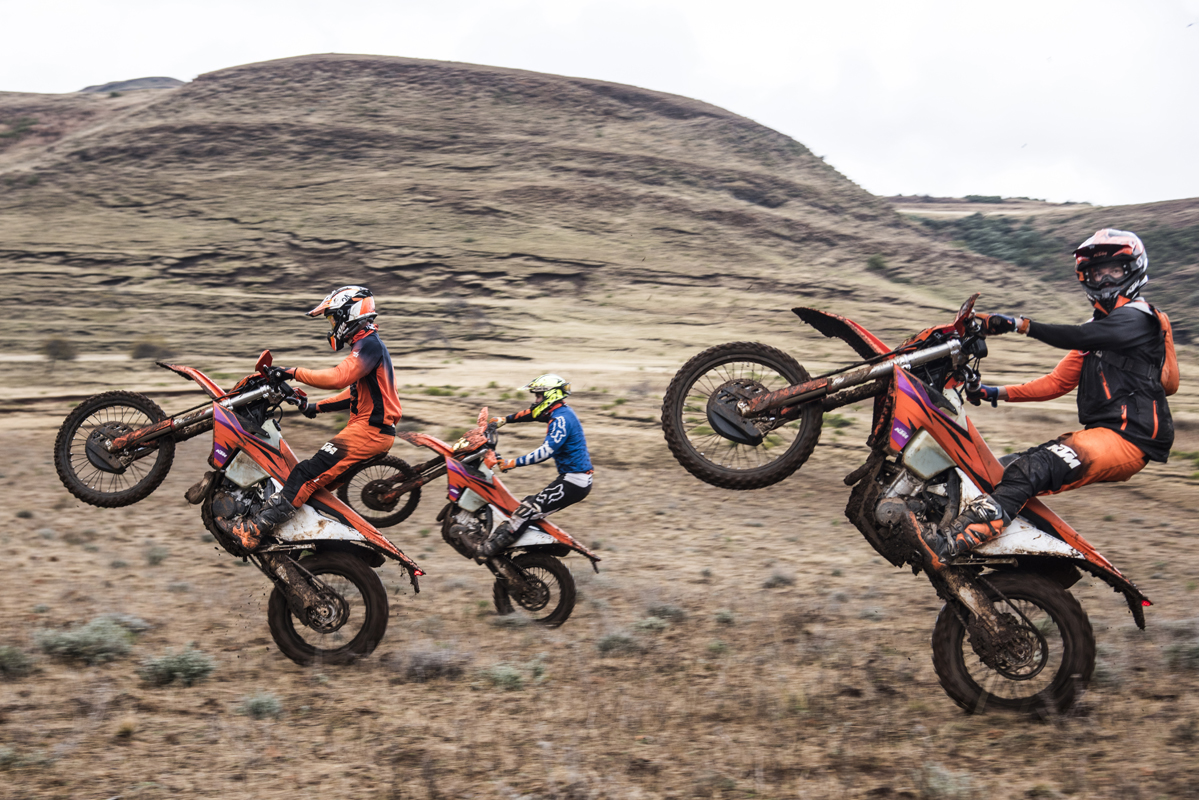
Team Orange seem to have hit the golden buzzer once again this year and has somehow taken not just their range of dirt bikes, but dirt bikes in general, to the next level. To showcase their new 2024 Enduro range, KTM invited the local and international media to the promised land, “the Mother of Hard Enduro,” the mountains of Lesotho. With a nod from myself and our test rider Zandre de Klerk, we hit the wide open road from KTM HQ in Kyalami with Bruce behind the wheel and Kevin Sanders (Disruptive Intent Media) riding shotgun.
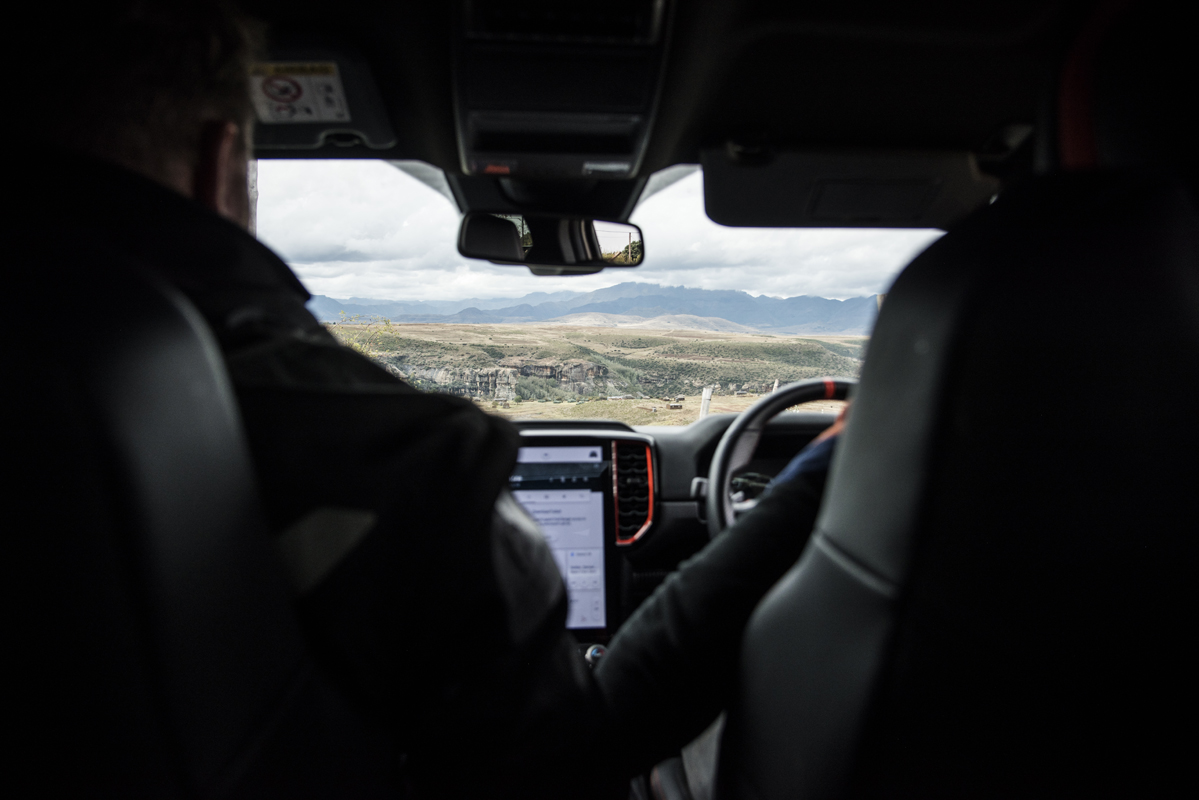
As always, the long trip seemed much shorter thanks to the bike banter and questions we had about the new range of Austrian mountain goats. Every few years KTM do a complete refresh of their models, which shocks both the media and other manufacturers. What happens after the refresh is a continuation of updates each year to polish the overall package before starting all over again on a new canvas. This mentality has earned KTM 126 World Enduro titles and they continue to give us petrolheads, two-strokers and dirt riders so much hope going forward into the future—knowing that KTM is riding with us all the way to the end.
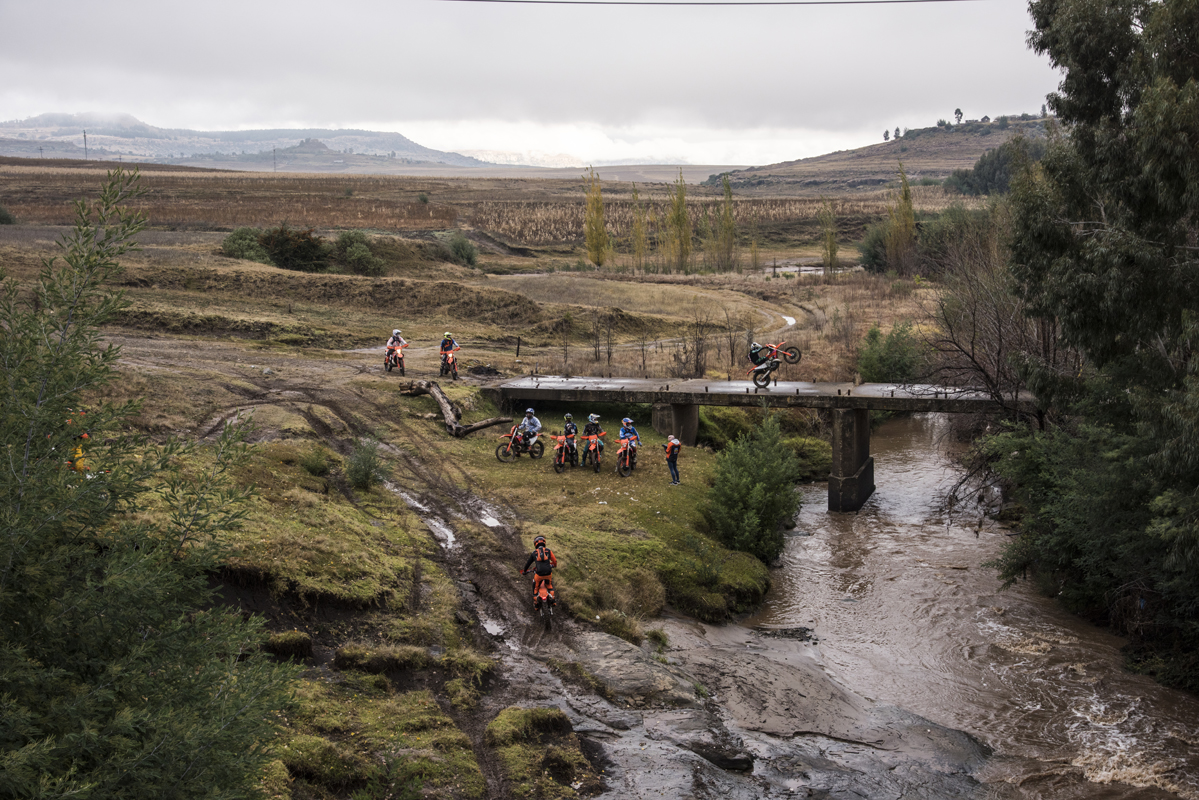
Arriving at the Thaba Bosiu Cultural Village in the late afternoon, saw us make our way to KTM’s presentation and reveal of their three new two-stroke and four new four-stroke Enduro machines. Diete Engelbrecht and Grant Frerichs then talked us through what is essentially a 95% new Enduro range. Yes, it’s easier to talk about what hasn’t changed, in fact, all that’s left from the old bikes are the wheels, brakes and handlebars. Just when we thought the 2023 models were going to be hard to replace, KTM blow the 23s, mid-year, out of the water with major advancements. The new livery and purple highlights also pay tribute to KTM’s hard charge in the early 1990s.
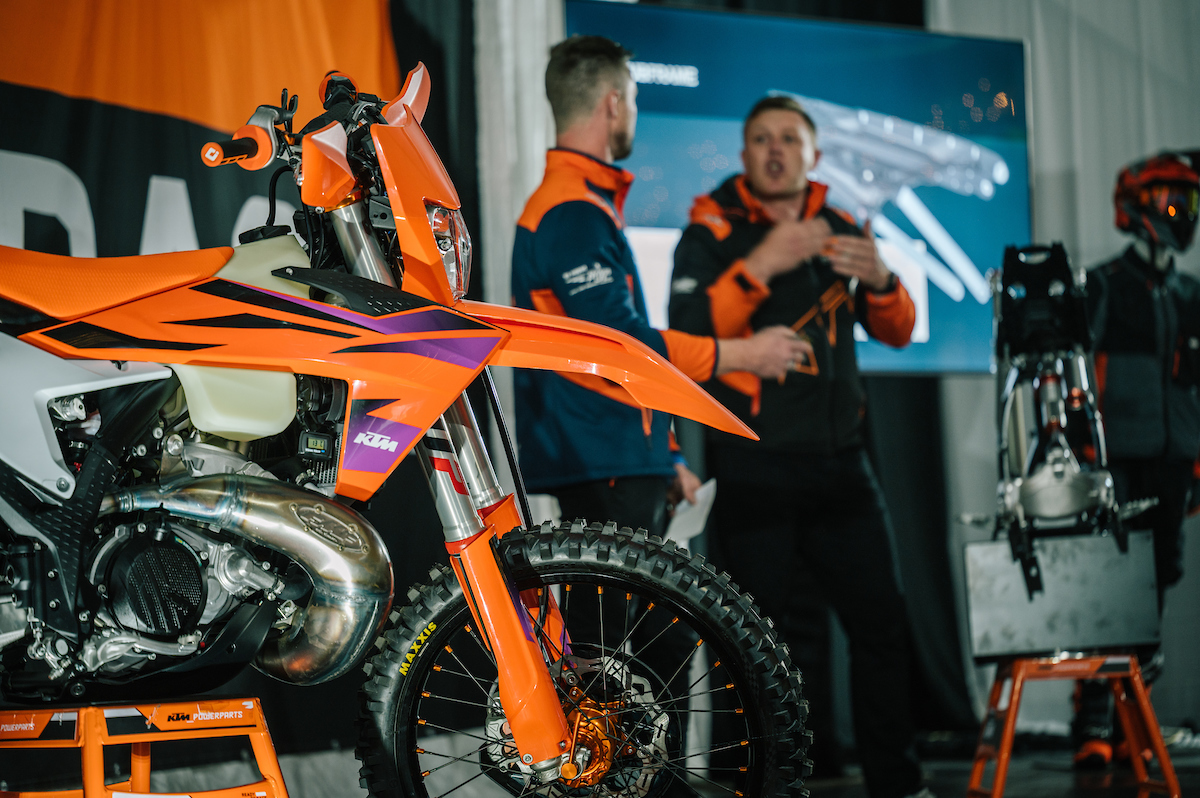
We are talking about a new hydro-formed, laser-cut, and robot-welded frame, revolutionary closed-cartridge suspension, refined bodywork, LED headlight, all-new lightweight 2-piece subframe, new Red Bull KTM Factory-inspired bodywork, new front fender design featuring mud-repelling fins, wider footpegs, new triple clamp, lighter swingarm and a totally independent OCU, which replaces the use of electronic fuses and relays.
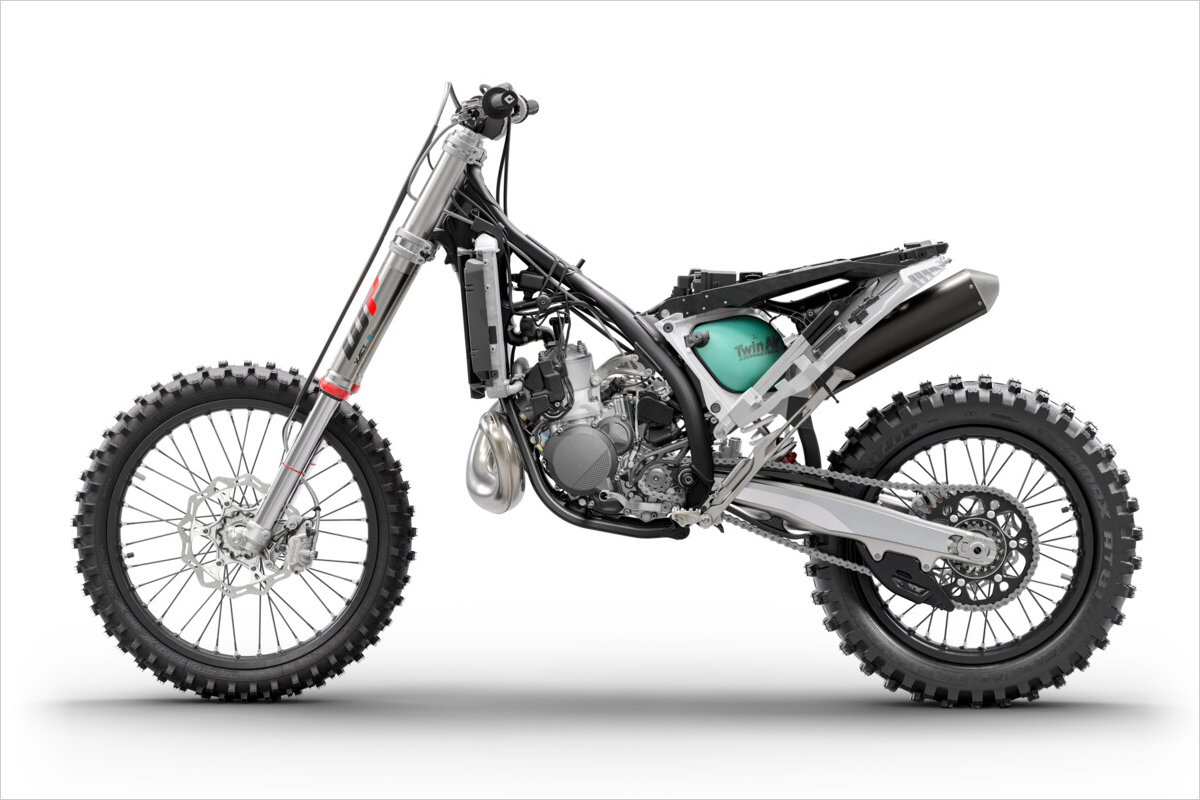
Lastly, we see TPI fall away to TBI on the two strokes, which now allow for two different engine maps, selectable via an optional Map Select switch. On the EXC-F models, we now see an optional addition of traction control and for the first time ever on an enduro machine, a quick-shifter function.
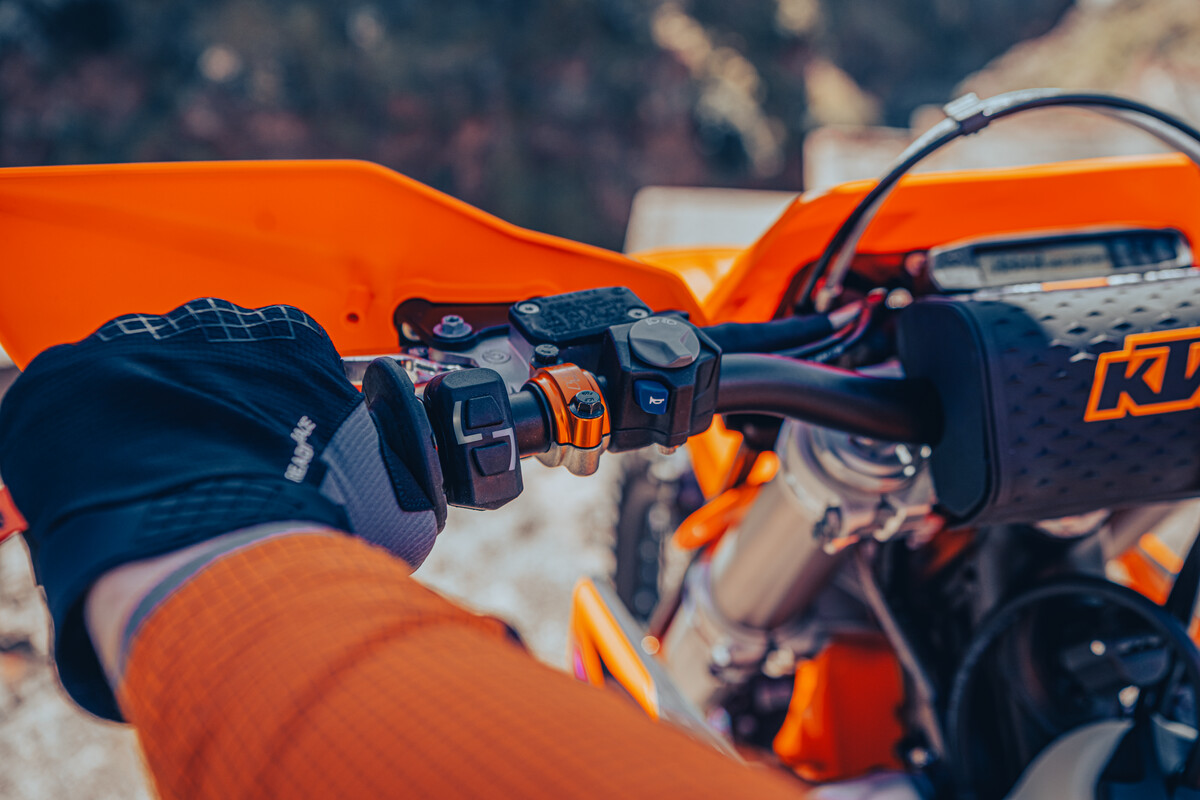
KTM’s tech gurus really dove into the detail of the all-new 48 mm WP XACT Closed Cartridge fork and new electronic “Throttle Body Injection” technology on the two strokes called TBI. You really could write a full article on these two items alone! To dumb things down for us non-rocket scientists, the forks now feature a new mid-valve piston concept that optimizes oil flow within the cartridge. The biggy is the new hydro stop in the last 68 mm of the stroke, this helps when sending it off major drops. We also see the fork length increase from 928 mm to 940 mm, while the stroke has increased from 292 mm to 300 mm.
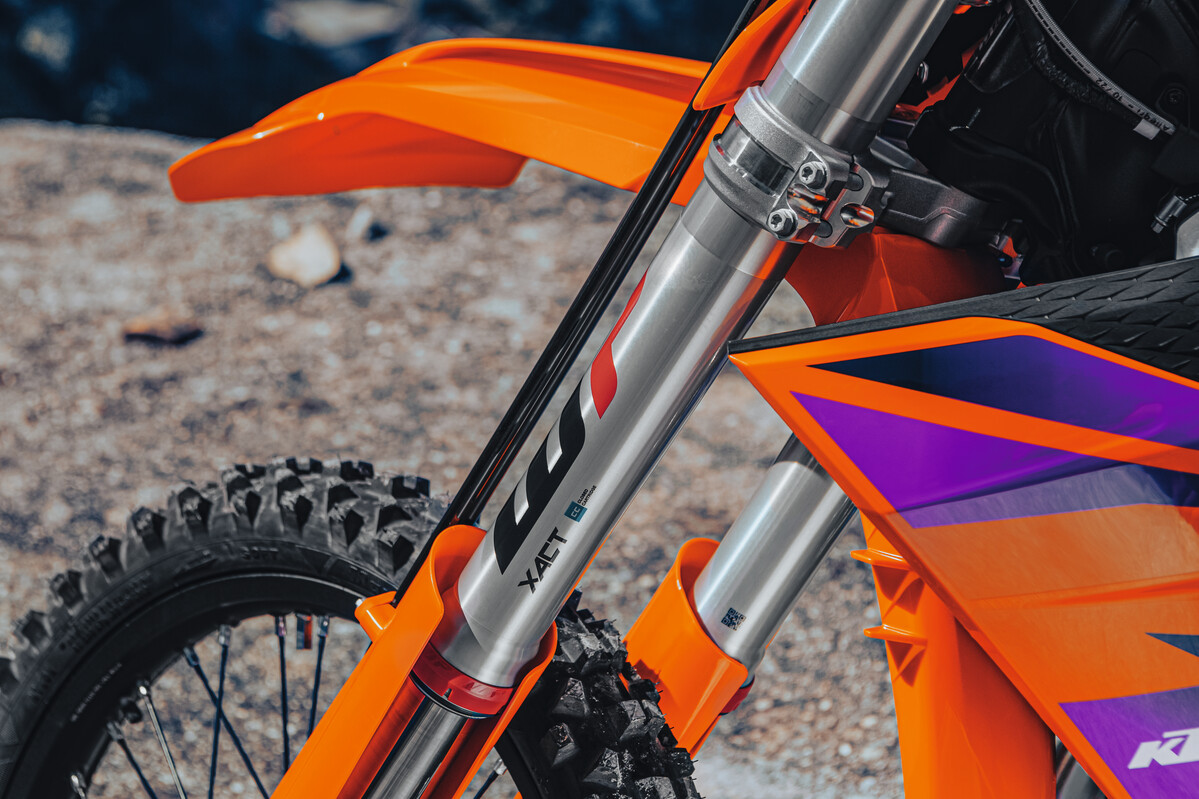
Hearing about new two-stroke technology and development really gets the hairs on my arms standing, it’s just so awesome to see a manufacturer taking a closer look at these high-performance motors when the rest are thinking EV. The new throttle body injection technology provides carburettor-like smooth power delivery while eliminating the need for re-jetting at different altitudes. Contributing to smoother power delivery and increased power is the electric power valve, which is controlled according to the throttle position and engine RPMs.
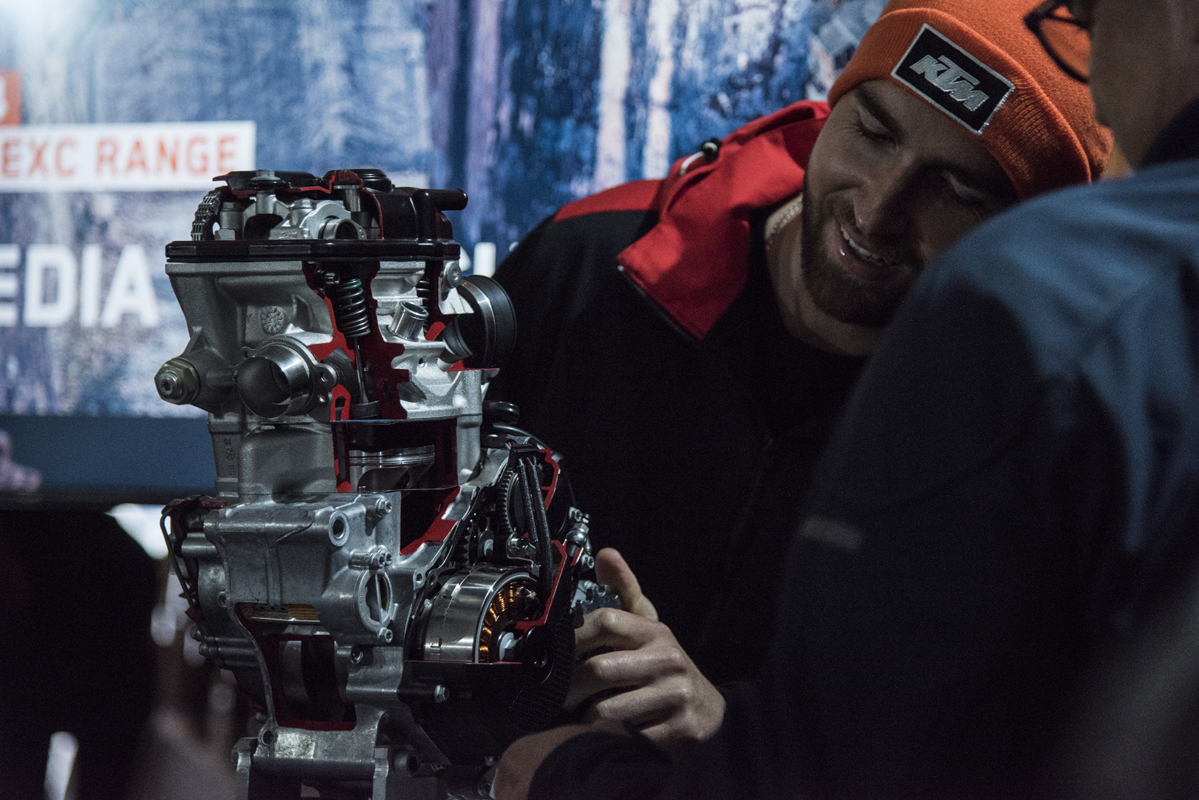
As the presentation drew to a close, we woke up the following day to a spectacular 360-degree view of Lesotho’s landscape at 1400 meters above sea level and a line of 8 Enduros, all calling each rider by name. An 85 km route was planned for the day with a bit of everything thrown in—even a 2 km lunch stop Enduro X forest track. To give you an overview of the latest crop, we hand it over to Zandre.
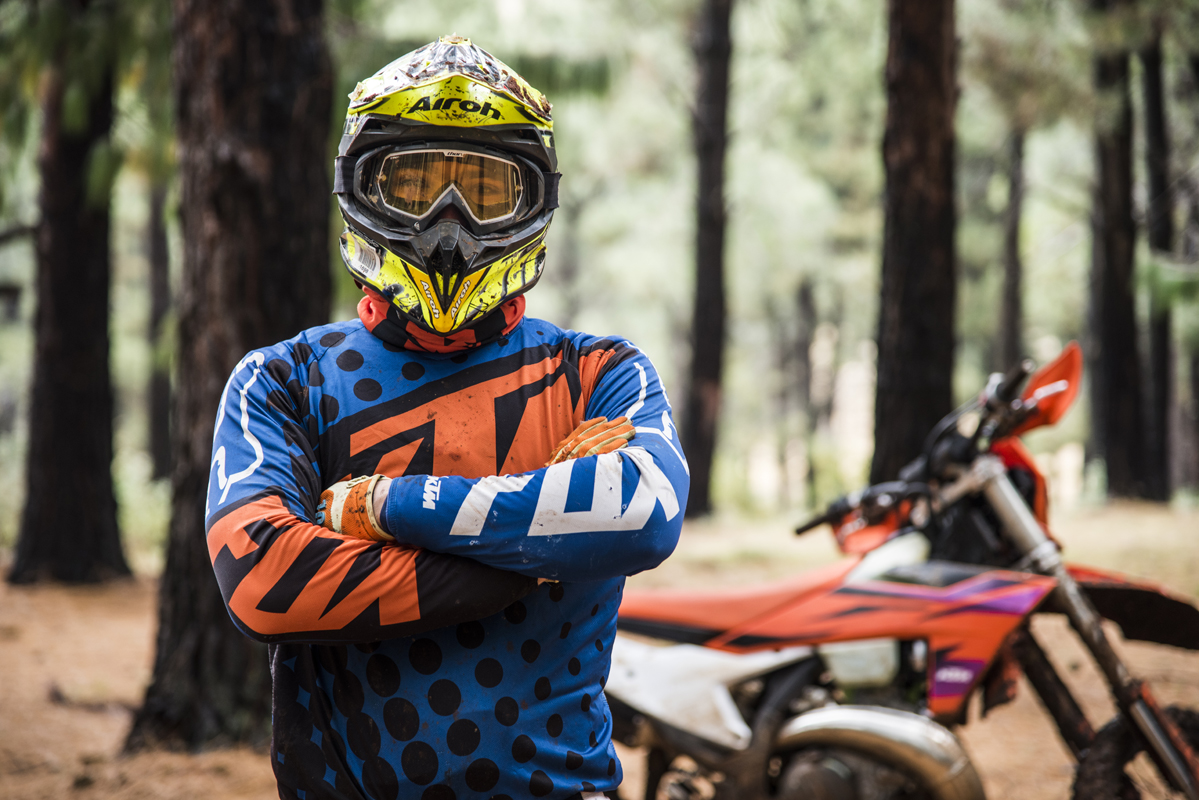
Side note: Zandre grew up riding dirt bikes and has no idea what tar even feels like. With 12 years of enduro riding experience and a Roof of Africa under his belt, Zandre set about jumping onto the two-stroke range first.
KTM 150 XC-W
Having spent a lot of time on my EXC 200 and having ridden the previous gen 150 XC-W TPI, I was very keen to ride the new TBI bike. The first thing that you always notice when riding the 150 is how light the bike is, making for a really fun and confidence-inspiring package to push really hard on. With all the frames and suspension components across the range receiving some serious upgrades, I felt myself riding more on the balls of my feet than before, which made a massive difference when riding technical on the 150. A very natural riding position.
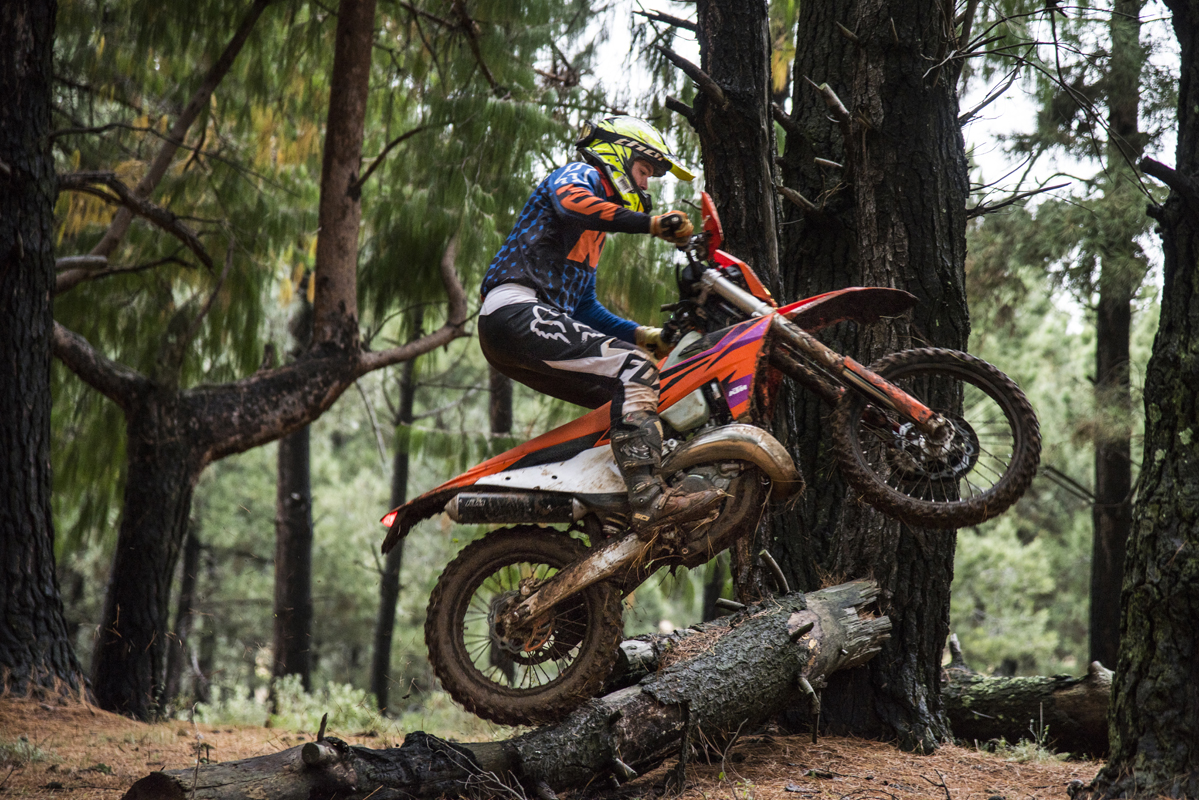
Power-wise and I don’t know if it has to do with the altitude, but it didn’t feel like the 150 performed any better than before. However, considering that the piston is as small as a baby’s fist, it has a decent bottom end for a two-stroke. If you have the skill to keep the little motor singing, it is hugely rewarding to ride. But, this has to be your riding style otherwise you and the 150 will not be best mates on an enduro. With myself weighing just over 85 kg, I think the younger and lighter riders will suit the 150s power-to-weight ratio better than myself.
KTM 250 XC-W / 300 XC-W
In love! The 300 is and always has been the hard enduro rider’s first choice, I mean we look at riders like Wade Young on the world stage for example. The 250 and 300 XC-W share a lot, not just chassis-wise but engine internals too, like the clutch and gearbox. Although the 300 has been the king of enduro, I really enjoyed and actually preferred riding the 250. The reason for this is, the 250 is just so much more forgiving and lighter, especially when you are in the more technical sections.
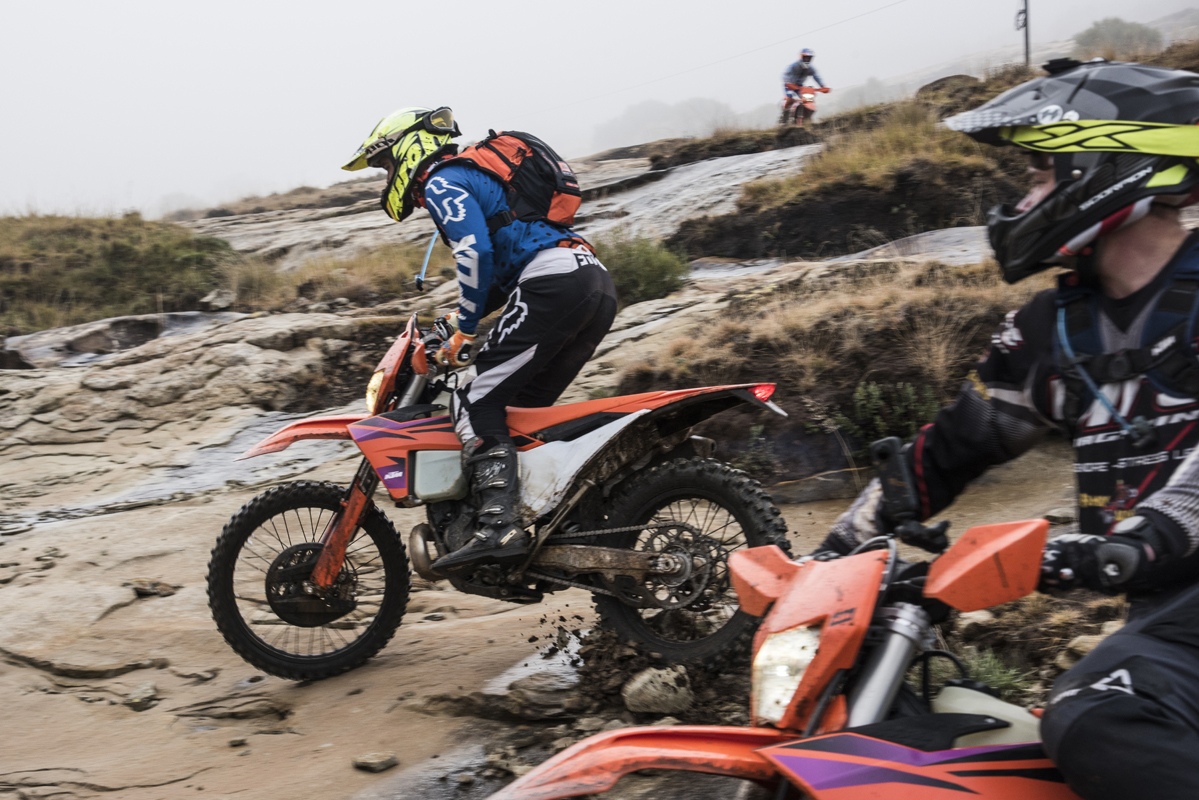
On the 250, the power is just enough and more controllable. However, what I do like about the 300 is how you can ride in the technical sections between second and third gear, while on the 250 you’d have to be in first and second. A stand-out feature for me on both the 250 and 300 XC-W is the suspension, which works exceptionally well, allowing for some hard-charging without feeling like you’ve left the rest behind.
During the test, I hit some pretty wild things on both of these two bikes. The suspension absorbed everything that Lesotho had to throw at them. For the weekend warrior, free rider, or racer, you can’t go wrong with either of these two options.
KTM 250 EXC-F
The 250 EXC-F as an entry-level bike is good, it’s a bike you can just jump on and ride. However, I did feel that the peak torque rpm range was higher than I’d like, which again, like on the 150 XC-W TBI, means you need to get the bike high in the RPMs for it to do what you’d like. This isn’t a significant issue though, I just personally prefer low-down torque, especially for enduro.
I did play around with the map switch and found that, if I set the bike up in the least aggressive map setting, and then, rode in a gear lower, this would result in a smoother climb. The more aggressive maps help to feed the power quicker, but then it makes for a messier climb.
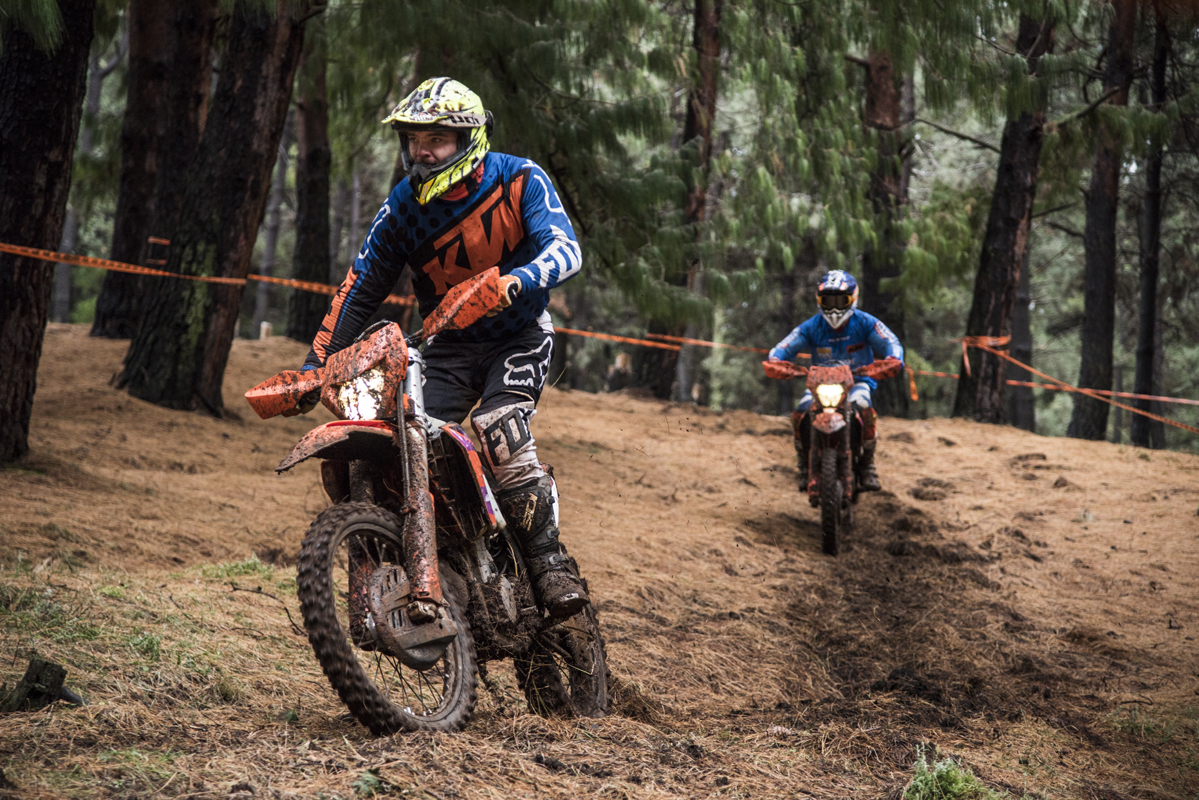
The light weight, agility and high rpm hit, make the 250 EXC-F a good all-rounder for beginners and riders who are looking to ride the more flat kind of terrain.
KTM 350 EXC-F
Just like the 250 and 300 XC-W two-strokes the 250 and 350 EXC-F four-strokes share a lot, but in my opinion, they couldn’t be any more different. The extra 100 cc really does make all the difference, those extra ponies for the up-and-coming riders give you a bike you can be competitive on and also grow into.
Speaking to the other guys at the launch, a lot of them (including me) would choose the 350 EXC-F out of the range. It’s just a dirt bike that makes logical sense.
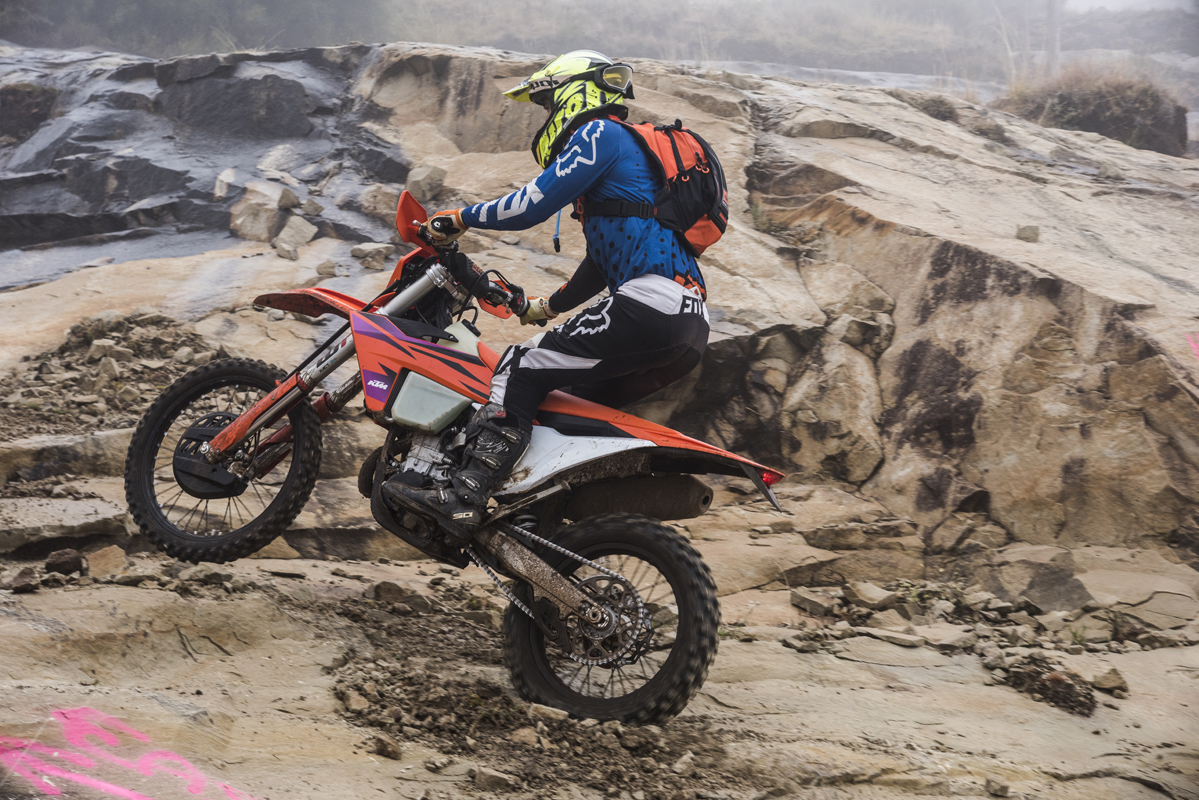
It’s got the power, it’s nimble, it can keep up with the 450 and even the 500 EXC-F with a good rider on the pegs, and it feels as light as the 250 EXC-F. On the technical climbs, the 350 tractors along everything in second and third with no effort at all. If you want a fun bike and a bike that you can go racing competitively on, then go 350 EXC-F.
KTM 450 EXC-F / 500 EXC-F
The new 450 EXC-F seems to be more tame than last year, the general consensus from the other riders was that the 450 is more like last year’s 500, less aggressive and more tractable. I must say, I spent some proper seat time climbing some crazy stuff on the 450 and it did it with ease, something that most wouldn’t even begin to attempt on previous models. Again, just like the 350 EXC-F, the 450 idles over everything and is almost impossible to stall. It was definitely a firm favourite to many of the other test riders, picking it over the 500 EXC-F.
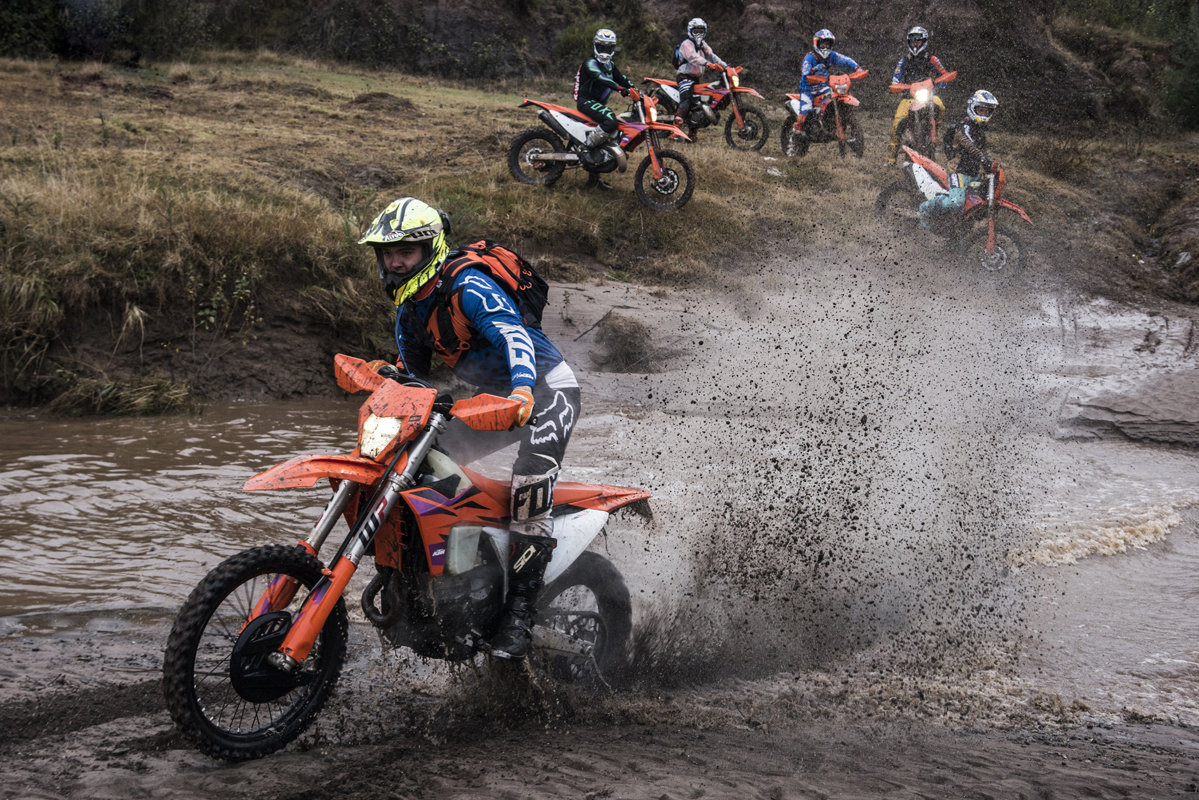
Although the 450 is an awesome machine, I found myself making heart-shaped eyes towards the 500. I found that the 500 is such a capable do-it-all dirt bike, I’d go as far as to say that, I’d feel confident and comfortable enough to do the “Roof” on it. The 450 and 500 just make sense for the guy that wants a good all-rounder. Add flickers, mirrors and luggage, and you have the perfect adventure riding setup, or if you enjoy the flat-out desert type of riding, they do-it-all. By the same token, they are still very light-capable enduro machines.
Additional Info…
I found the traction control to be amazing, obviously, it’s only available on the four-strokes, but I found myself riding much quicker and having way more grip with it switched on. It also works very seamlessly to the point where I couldn’t really feel it kick in that often. Another standout on the four-strokes was the quick-shifter. I found that it worked extremely well on the faster, more open sections and again, it was very smooth, especially on the 450 and 500 models. Towards the end of the day, I started getting some really bad ‘arm pump’, so having the quick-shifter coming out of the technical and onto the open stuff really helped with that.
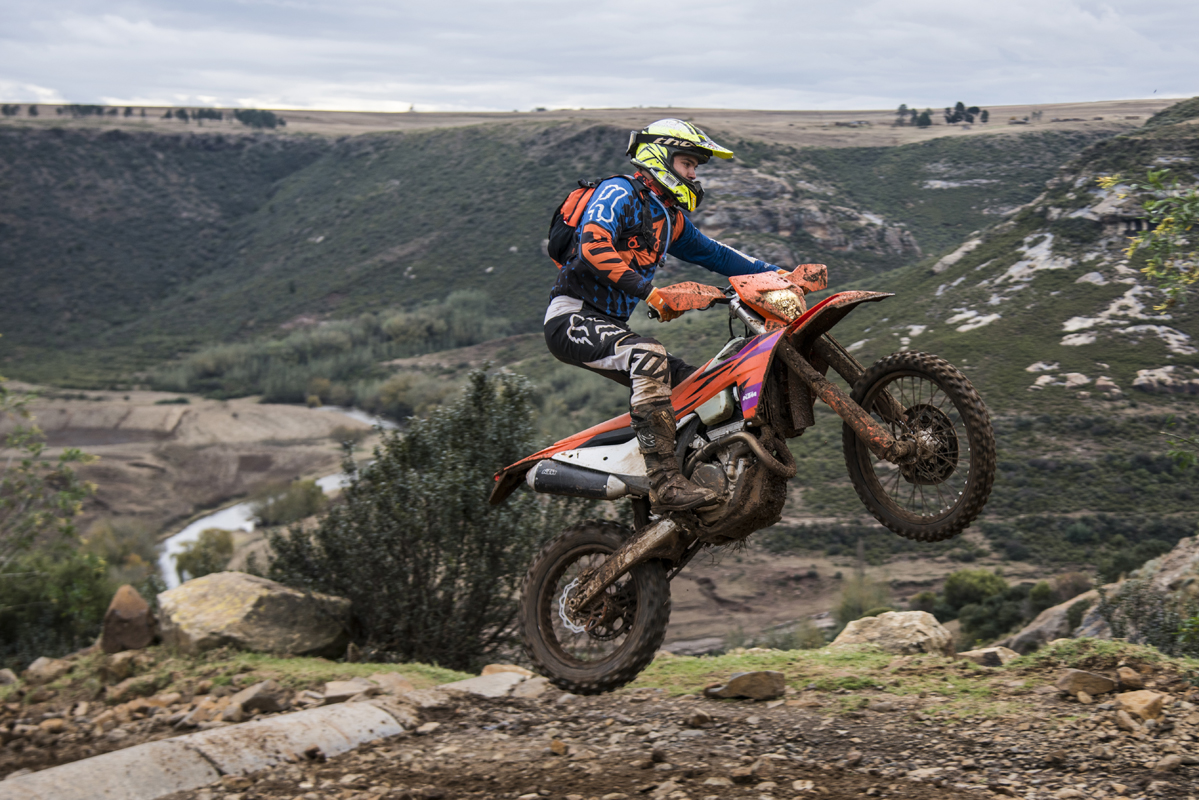
So there you have it guys. Obviously, these are just riding impressions gleaned from a day riding in proper dirtbike country, but believe us when we say that these 2024 KTM Enduros do not disappoint! The all-around technical and real-world brilliance of these bikes shines through.
For more information on the bikes featured in this article, visit: www.ktm.com





